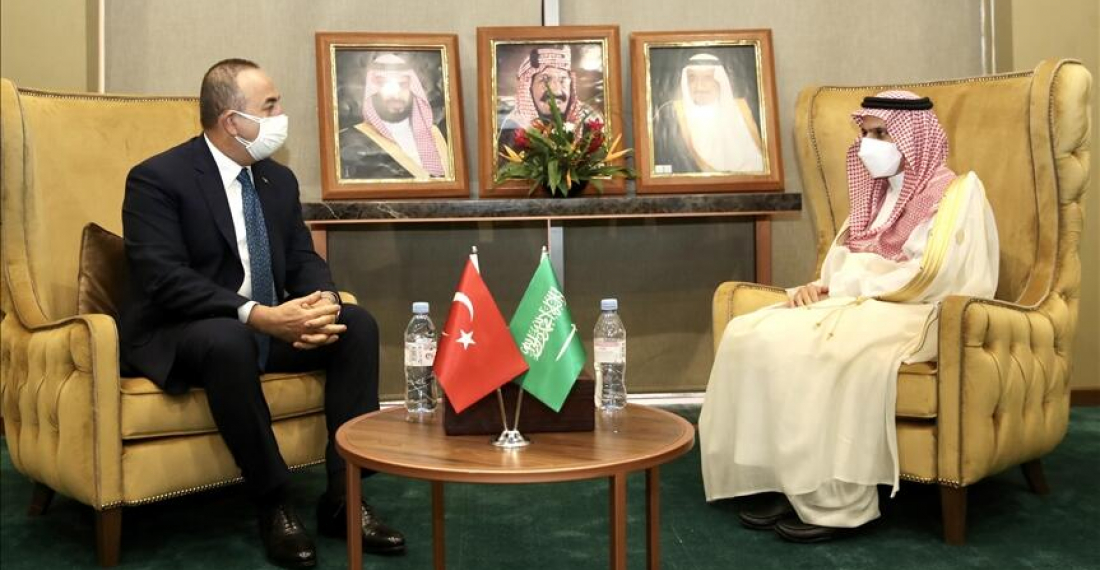The foreign ministers of Turkey and Saudi Arabia met on Friday in what the Turkish side described as a "sincere" meeting.
Turkish Foreign Minister Mevlut Cavusoglu said he held a meeting with his Saudi counterpart to discuss bilateral relations and regional issues. Cavusoglu said in a tweet that the “sincere” meeting with Faisal bin Farhan Al Saud was held on the occasion of the 47th session of Organization of Islamic Cooperation's (OIC) Council of Foreign Ministers.
"A strong Turkey-Saudi partnership benefits not only our countries but the whole region," Cavusoglu said, adding Ankara attached importance to its bilateral ties with Riyadh.
Relations between the two countries have been cool in recent years due to disagreements on a number of issues, including in the stand-off between Qatar and a number of other Gulf Co-operation Council countries. Turkey has been a strong backer of Qatar, and now has a military presence in the Gulf emirate. Relations also deteriorated after the murder of journalist Jamal Kashoggi in the Saudi Consulate in Istanbul, which shocked world public opinion. The two countries also vie for the leadership of the Muslim world.
There are currently a number of initiatives going on behind the scenes to try to normalise relations between the Gulf states themselves, as well as with Turkey, but observers consider the process to be a lengthy one since the two sides are at odds with each other on a number of issues. But the meeting between the foreign ministers is seen as a positive step, and an indication that diplomatic channels remain open.
source: commonspace.eu with agencies
photo: The foreign ministers of Turkey and Saudi Arabia met on 27 November 2020 on the margins of the 47th Ministerial Meeting of the Organisation for Islamic Co-operation.






